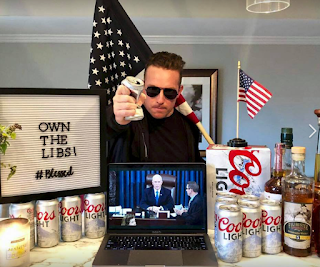Do you have a right to share your own genetic information?
For a libertarian, this seems like a no-brainer. But it isn't, so read on.
There have been several recent cases where genenalogical and DNA information, uploaded by its owners to gedmatch.com, a public database, has been downloaded by law-enforcement and used to solve murders and rapes. So far it's all good.
Of course, we could solve far more murders and rapes by simply forcing everyone to provide a sample of their DNA to the police. As a society, we've chosen not to do that (rightfully, I believe) reasoning the vast invasion of privacy outweighs the social good. And police in the US can't go on a fishing expedition for DNA. To force you to provide it, they have to have probable cause to believe you committed that specific crime, and they can't use your refusal to provide DNA voluntarily as evidence. Fourth Amendment.
Large databases have changed all that. If I compare a DNA sample with such a database, for any given DNA sample, I can almost certainly identify dozens of third or fourth cousins or closer. If said cousins also obligingly provided a family tree, it isn't hard to figure out who the DNA sample belongs to. I mean, these are cops, and they're doing it -- of course it isn't hard. And even if it isn't quite conclusive evidence, it's almost certainly enough probable cause to demand a full DNA sample from you, which will seal your fate.
While it's so far been used to solve murders and rapes, it could be used in future to solve any crime for which they've found DNA, including things you might think should not even be a crime.
Now genealogists, even thoughtful genealogists, haven't really thought this through, partly because it's new, and partly because DNA databases are incredibly useful for solving tricky genealogical problems, and they don't wanna; and partly because so far this has been positive publicity for us all. Privacy laws in general get in our way. So gedmatch.com gives virtually unrestricted access to its database.
Now you might answer it's my DNA. But is it? Remember, half your DNA is shared with your parents and children and siblings, a quarter with your grandparents and grandchildren and uncles and aunts and nephews and nieces, etc.. If I tell you my DNA sequence, you have half my sister's (mostly you don't know which half, but once you have a second relative, it starts to get easier). We share our DNA sequence, partially, with literally thousands of other people. You can certainly consent to sharing your information, but none of those other thousands of people consented, and it's partly theirs too.
This is, I claim, a problem for libertarianism/liberalism, which are founded on individualism and individual rights. Because in the very deepest sense, none of us are truly individuals. I've see a case where a little chunk of DNA was inherited intact from someone's ancestor in Montbeliard, an extinct country between France and Switzerland, in the late 17th century. Show me that particular piece of DNA, and I can guarantee you and and the person I'm referring to have that common ancestor. It's likely hundreds of people have it.
By making your DNA openly available, in effect you're giving away your relatives' fourth amendment rights to be free in their persons from illegal search and seizure. I claim you do not have the right to do that. It's unusual for a libertarian to say there ought to be a law, but honestly, I don't see how one avoids one here.



Comments
Post a Comment